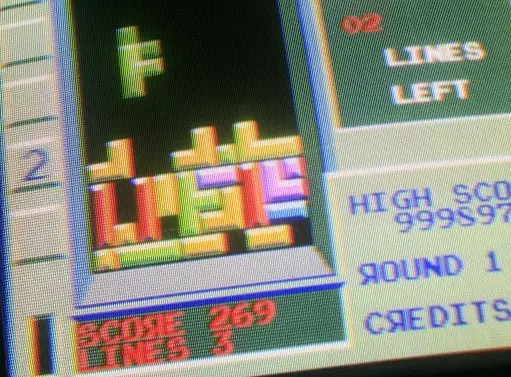
Have you ever repeated an action so many times, that it feels like you're still carrying out the task even after you've finished it?
It used to happen to me when I worked at McDonald's. All those little beeps and movements would play over in my head long after I'd clocked off. If you've no idea what I'm talking about, then think back to the last time you were on a boat. If you suffered from 'sea legs' during the trip, you probably still felt wobbly when you next walked on land.
This isn't because your balance was woozy, but simply because you were used to wobbling while on water. You were stuck in a bad habit.
There's actually a name for this feeling: The Tetris effect. Named after the popular arcade game, the effect was seen in kids who spent hours playing Tetris. Even after they ran out of quarters, they said the game was on a loop in their head.
Not much research has been done on the phenomenon. However, BrainDecoder.com managed to speak to Angelica Ortiz de Gortari, a psychologist at Nottingham Trent University, who knows a lot more than most.
She prefers the term 'game transfer phenomena'. She's spoken to a whole range of gamers, including those who love Tetris, World of Warcraft and even Rock Band.
She found that it doesn't just happen at night when you're about to go to sleep, although this is pretty common. It can happen while driving, watching TV and even daydreaming. These 'trance-like' states can expose you to a range of sensory experiences. So, picturing the game aside, you can hear things and even be exposed to the 'feeling'. Ever ridden a roller coaster a few too many times and felt like you were still flying when you got off? That's The Tetris effect's 'feeling'.
The only thing is, although we know that it does happen, we don't know much about why. Ortiz de Gortari says that if we did, we could possibly use it for our own benefit
In a blog post, she wrote: "As an academic researcher, you're more likely to get funding if you link video games to something positive, or most probably, something negative.
"I don't know whether these effects are positive or negative. It's just something that happens. But it's important to study because it could have links to things that people do every day, and if we know how it happens, we can maybe exploit it in some way."
Hopefully, this will happen at some point. Especially as gaming gets more and more popular.
Words by Mel Ramsay
Featured Image Credit: